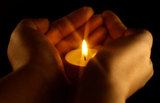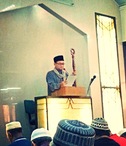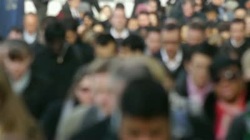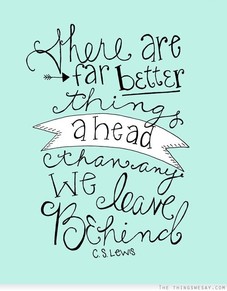
In the introduction of his compendium of Shafi`e fiqh entitled "Al-Majmu`." Imam an-Nawawi mentions that Imam asy-Shafi`e used a walking stick for which he was asked: "Why do you carry a stick when you are neither old nor ailing?" He replied: "To remind myself that I am only a traveller in this world."
While he was alive, Imam asy-Syafi'e used his walking stick to remind himself of the vulnerability and precariousness of Life. On his deathbed, he rejoiced:
"When my heart was hardened and my courses constrained,
I made my hope a stairway to Your Forgiveness.
My sins burdened me heavily, but when I measured it by Your Forgiveness,
O Lord! Your Forgiveness was the greater."
SubhanAllah! This is the perspective and outlook of a man with strong conviction of Faith in his heart. When the wisdom of knowledge and deeds are applied judiciously, all forms of weaknesses and despair will transform themselves into sources of strength and hope. All manners of attachment to everything ephemeral will dissipate, if we direct our utter dependence on The One - who is Permanent and Everlasting. This surrender necessarily demand from the believer, complete Trust in the handhold of Allah (s.w.t.) and the Wisdom it entails.
With this attitude, one's living and dying (and everything in between) will be a more beautiful process because the Hereafter will be more comforting for the believer as his final and permanent abode. There is always another perspective that will give him hope. In short, this is the true meaning of complete submission to the Will of The Almighty.
This is corroborated by a Hadith Qudsi, in which the Beloved (s.a.w.) narrated that Allah (s.w.t.) said: "A servant [of Allah] committed a sin and said: 'O Allah, forgive me my sin.' And Allah said: 'My servant has committed a sin and has known that he has a Lord who forgives sins and punishes for them.' Then he sinned again and said: 'O Lord, forgive me my sin.' And Allah said: 'My servant has committed a sin and has known that he has a Lord who forgives sins and punishes for them.' Then he sinned again and said: 'O Lord, forgive me my sin.' And Allah again said: 'My servant has committed a sin and has known that he has a Lord who forgives sins and punishes for sins. Do what you wish, for I have forgiven you." {Bukhari, Muslim}
The path is made so easy for us, so don't complicate it. And this is done out of the Absolute Mercy and Absolute Compassionating nature of Allah (s.w.t.) upon us. On many occasions, it seems as though we don't deserve such kindness and love from Him. But, He has made them available for all of us - that means He has not given up on us, and so we should not give up on ourselves.
That speaks a lot about our condition, and most importantly, our complete dependence on His Majesty.
So, it is quite high time that we place our expectations, instead of upon His creations who will disappoint, on The Creator instead. Trust that supreme handhold that will never break. Hold fast to the Rope of Allah - for every living moment that we are alive, that Rope is being offered to us. Put your Faith to allow Him to navigate your route back to Him.
Hope, is a stairway to Allah's Forgiveness. Faith, is in trusting Him to pave the way. For indeed, hope and His Forgiveness will be your success, in this world and the next.
That, assuredly, will be our most beautiful journey back home.
Love,
The Alchemist.









 RSS Feed
RSS Feed
